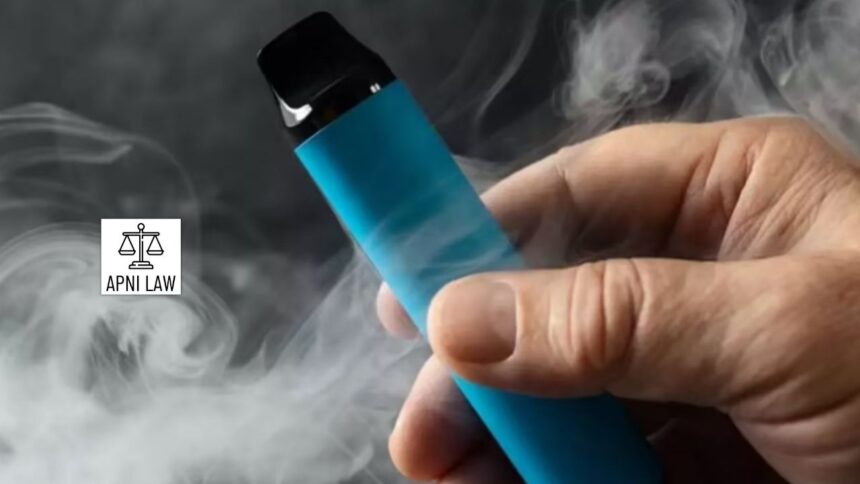Introduction
India banned e-cigarettes in 2019 under the Prohibition of Electronic Cigarettes Act (PECA). The law stops the production, manufacture, import, export, transport, storage, distribution, and advertisement of e-cigarettes across the country. Many people still wonder if there are exceptions to vape ban in India. In reality, the ban is almost complete, and only very narrow exceptions exist.
Are There Any Exceptions for Businesses
The Act does not provide any exemptions for businesses. Retailers, importers, manufacturers, and distributors cannot deal in e-cigarettes. The restriction covers all types of devices such as disposable vapes, refillable e-cigarettes, e-hookahs, heat-not-burn products, and even their parts or accessories. Businesses cannot claim any carve-outs or loopholes under this law.
What Are The Penalties
The Act imposes strict punishments on violators. A first offence can result in imprisonment for up to one year, a fine up to ₹1 lakh, or both. A repeat offence can lead to imprisonment for up to three years, a fine up to ₹5 lakh, or both. Even storing e-cigarettes can bring up to six months in jail, a fine of ₹50,000, or both. These offences are treated as cognizable, which means police can arrest without a warrant. Company officials are also held responsible if their business is found violating the law.
What Was Limited Grace Period in 2019
When the law first came into effect, owners of e-cigarette stocks were given a short grace period to declare and deposit them with authorities. This was not a business exception. It was only a one-time opportunity to surrender existing inventory, and it did not allow businesses to continue trade.
Is Medical Device An Exception
The only possible exception under the law applies to devices that qualify as medical equipment under the Drugs and Cosmetics Act, 1940. Such devices must be specifically licensed for medical use. This exception is very narrow and does not cover normal e-cigarettes sold in the market. Therefore, it does not provide relief for businesses.
What Businesses Must Know
The prohibition applies throughout India, covering all states and Union Territories. Online sales and advertisements of e-cigarettes are also illegal. Businesses cannot try to bypass the law by importing unbranded devices or components. Customs and enforcement agencies actively intercept shipments, and individuals carrying vape devices into the country often face confiscation or prosecution.
Some individuals and businesses have received temporary bail or stay orders from courts in specific cases. These orders are not general exceptions. They only delay prosecution and do not make the trade or possession of e-cigarettes legal. For any specific query call at +91 – 8569843472
Conclusion
The vape ban in India leaves almost no space for business activity. The only exception applies to licensed medical devices, which are rare and not relevant to regular e-cigarettes. Businesses that attempt to produce, sell, store, or advertise e-cigarettes face severe penalties, including imprisonment and fines. Enforcement is strict across online platforms, airports, and customs. For businesses, the law is clear: e-cigarettes are completely prohibited in India, and any involvement with them carries serious legal risks.







